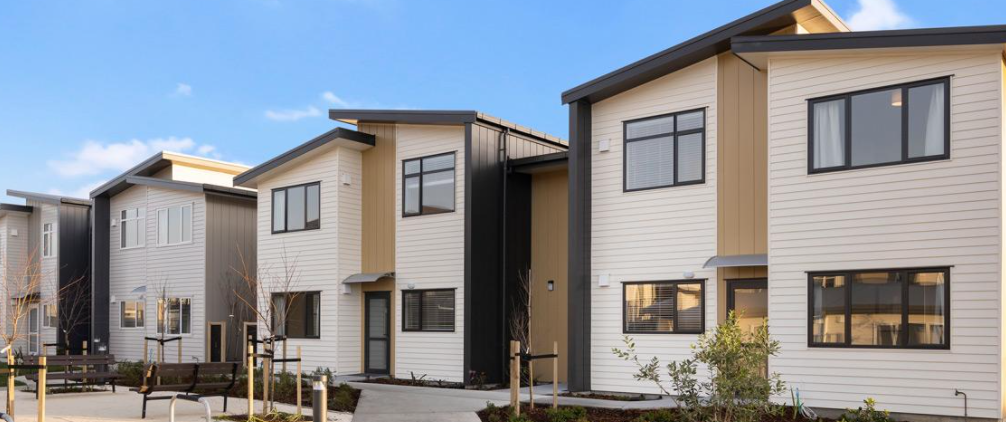

Economist Shamubeel Eaqub explains the wins and losses for Pacific communities if a capital gains tax goes ahead.
Image/Composite
Capital gains tax could ease burden on future Pacific workforce
Pacific communities might initially avoid the impact of a potential capital gains tax due to lower home ownership rates and wages, but a larger challenge looms.


Māngere family says ‘yes for now’ to home buyout after two-year wait for answers

New Caledonia's quest for full independence persists amid new deal with France - expert

Balance and focus drive Manu Sāmoa ahead of Scotland showdown

Auckland principal urges preservation of Vagahau Niue amid teacher shortage

Māngere family says ‘yes for now’ to home buyout after two-year wait for answers

New Caledonia's quest for full independence persists amid new deal with France - expert

Balance and focus drive Manu Sāmoa ahead of Scotland showdown
Today’s Pacific communities may be able to sidestep the immediate pain of a capital gains tax, but this could be masking a growing problem for future generations.
“Nobody likes to pay tax,” says economist Shamubeel Eaqub, who explained how it works.
“Capital gains tax is like a tax on the profits that you make on an investment. Say you buy an investment property and you make a $100,000 profit on that because the house price has gone up, you'd pay a tax on that like you do on your wages.”
This comes following a survey showing two-thirds of New Zealanders would support a capital gains tax in some form. Fifty-seven percent supported it for the sale of an investment property, and 43 percent on the sale of a business.
Speaking to William Terite on Pacific Mornings, Eaqub said the current tax model is unsustainable.
“Most of the taxes are paid by people who are between the ages of 30 and 55, the majority of people. But we're running out of those people, we have an aging population, we don't have enough young people.”
However, the Pacific population is the youngest, fastest growing ethnic group in the country, with a median age of 25 compared to the national median of 38.1.
Former assistant Retirement commissioner Peter Cordtz said this difference has major implications for the future workforce.
“To put it bluntly, an aging palagi population is going to be more reliant on a young, growing Pacific and Māori population to fund their New Zealand Super in the future.”
Labour’s finance spokesperson Barbara Edmonds said we need to start planning for fiscal challenges ahead.
“In 2060, when the next generation, when my children retire, the health cost and the superannuation cost will almost cover most of the government spending.”

Social housing initiatives have been set up to support lower-income famililes towards home ownership. Photo/Salvation Army
While former Labour prime ministers ruled out a capital gains tax, Edmonds said they are now having serious discussions about the broader tax system.
"Why should a cleaner or a bus driver or a security driver in Porirua or in South Auckland, why should it be that every dollar that they earn is taxed? But yet, if you invest in capital and you sell that capital, you don't get taxed at all?"
Short term silver lining
One in five Pacific households (21 per cent) are homeowners compared to 60 per cent of New Zealand Europeans. Eaqub said any changes to taxes may have less sting for Pacific communities in the short term.
“If we had a new capital gains tax, the big improvement for Pacifica in the immediate future would be that we'd pay less tax on our income and possibly on GST. And second, we would not be caught in the same way with the wealth tax because unfortunately our Pacific population still isn't as wealthy as the rest of New Zealand.”
Meanwhile, Cordz said policy makers need to address factors that contribute to long term inequities.
“It’s critical for everyone that Pacific peoples are uplifted, higher incomes, more secure employment, because the thing that Covid has highlighted is our people are not only the lowest paid, they’re also in the least secure sectors.
“If you’ve worked in manual labour all your life, your body’s breaking down well before 65. So the ability to even continue to work and earn, let alone save through to 65, our communities are severely disadvantaged.
“The challenge is for our communities to be able to reach 65 in good enough shape to be able to enjoy retirement, let alone benefit from New Zealand Super in the way it’s intended to.”